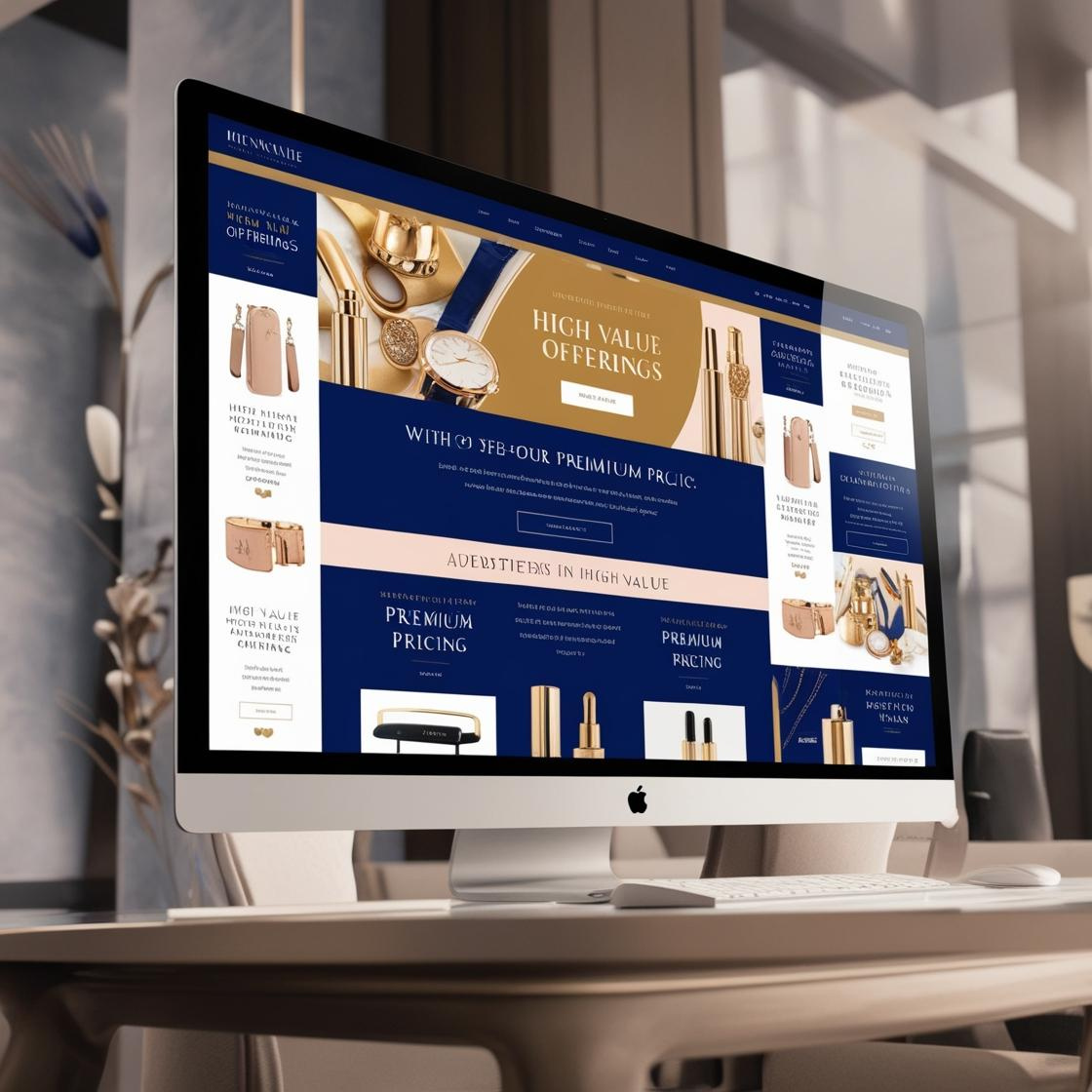Why Competitive Bidding is Driving Up PPC Costs in 2024
Pay-per-click (PPC) advertising has long been a cornerstone of digital marketing strategies. Its ability to drive targeted traffic and generate measurable results has made it a go-to channel for businesses of all sizes. However, as more companies enter the digital advertising space, the cost of PPC campaigns is steadily rising, driven by increasingly aggressive competitive bidding.
In 2024, the landscape of PPC advertising is more competitive than ever. With advanced AI tools, shifting consumer behavior, and evolving market dynamics, businesses are finding themselves in intense bidding wars. This article explores the factors driving up PPC costs in 2024 and what advertisers can do to adapt.
The Competitive Bidding Landscape in 2024
At its core, PPC operates as an auction system. Advertisers bid on specific keywords, and search engines like Google or Bing determine which ads are displayed based on bid amounts, ad relevance, and quality scores. As more advertisers compete for the same keywords, the cost-per-click (CPC) rises, often dramatically.
Key Trends Driving Competitive Bidding
Increased Advertiser Participation
- The digital advertising market continues to grow, with more businesses shifting their budgets from traditional marketing to online channels. Small and medium-sized businesses (SMBs) are entering the PPC space, joining established players, and creating heightened competition for valuable keywords.
AI-Powered Optimization
- Platforms like Google Ads are increasingly leveraging artificial intelligence to automate bidding. While AI helps advertisers optimize their bids, it also leads to more precise competition, as advertisers bid higher amounts for keywords that AI deems likely to convert.
E-commerce Giants and Retail Competition
- Retailers like Amazon, Temu, and Shein are engaging in aggressive bidding strategies, particularly during high-demand seasons such as Black Friday and the holiday shopping period. Their deep pockets allow them to dominate auctions, driving up CPCs for smaller competitors.
Inflation and Budget Adjustments
- Economic inflation has impacted marketing budgets. Advertisers are willing to spend more to secure a competitive edge, further inflating bidding costs.
Focus on Mobile and Local Search
- The rise of mobile and local searches has created additional competition for location-specific keywords, especially in industries like restaurants, healthcare, and home services.
The Effects of Rising CPCs on Advertisers
Higher PPC costs can have a cascading effect on advertisers, particularly those with limited budgets. Let’s examine the key challenges businesses face:
Lower ROI for Small Advertisers
- Smaller businesses often find it challenging to compete against larger companies with higher budgets. Rising CPCs mean fewer clicks and conversions for the same budget, reducing return on investment (ROI).
Decreased Profit Margins
- For industries with tight margins, such as retail and travel, rising CPCs make it difficult to maintain profitability while continuing to advertise.
Shift in Advertising Strategies
- To mitigate high costs, many advertisers are exploring alternative strategies, such as focusing on long-tail keywords, investing in organic SEO, or shifting to lower-cost channels like social media.
Over-Reliance on High-Performing Keywords
- As competition increases, advertisers may double down on proven keywords. However, this can lead to over-saturation, diminishing the effectiveness of these terms.
Industries Most Affected by Rising PPC Costs
Certain industries are more vulnerable to the impacts of competitive bidding due to their reliance on high-demand keywords. These include:
E-commerce
- Keywords related to popular products, especially during peak seasons, are experiencing some of the steepest CPC increases.
Home Services
- Local businesses such as plumbers, electricians, and HVAC companies are heavily competing for localized keywords, driving up costs in these niches.
Healthcare
- The healthcare industry, particularly private practices and urgent care facilities, faces high competition for keywords related to medical services.
Legal Services
- Terms like “personal injury lawyer” and “divorce attorney” have consistently high CPCs due to the high-value leads they generate.
Software-as-a-Service (SaaS)
- B2B companies in the SaaS space are bidding on highly competitive keywords such as “project management software” and “CRM tools,” often resulting in sky-high CPCs.
Why Competitive Bidding Will Continue to Rise
Several underlying factors suggest that the trend of rising PPC costs is unlikely to slow down in the near future:
Increasing Use of Automation
AI-driven bidding strategies are becoming more prevalent, and while they improve efficiency, they also intensify competition. As advertisers rely on AI to bid higher for high-value keywords, costs rise across the board.
Limited Inventory
Search engines have a finite amount of ad space. With more advertisers entering the market, there are only so many impressions available, leading to higher costs as demand outpaces supply.
The Value of First-Party Data
With the decline of third-party cookies and increasing emphasis on data privacy, advertisers are competing more fiercely for first-party data through PPC campaigns. This focus on customer acquisition further inflates CPCs.
Seasonal and Event-Based Bidding
Major events like Black Friday, Cyber Monday, and holidays see spikes in competitive bidding as brands vie for visibility during high-demand periods.
Strategies to Adapt to Rising PPC Costs
While rising costs pose challenges, businesses can adapt by optimizing their campaigns and exploring alternative strategies. Here are some actionable tips:
Focus on Long-Tail Keywords
- Long-tail keywords tend to have lower competition and CPCs while attracting more qualified traffic.
- Example: Instead of bidding on “shoes,” target “affordable running shoes for beginners.”
Prioritize Quality Score
- Improving your ad’s relevance, click-through rate (CTR), and landing page experience can boost your Quality Score, which reduces CPCs.
- Strategies include writing compelling ad copy and ensuring landing pages align with the search intent.
Leverage Remarketing Campaigns
- Remarketing to users who have already interacted with your site can yield higher conversion rates at a lower cost.
- Platforms like Google Ads and Facebook Ads offer robust retargeting capabilities.
Diversify Marketing Channels
- Reduce reliance on PPC by investing in organic SEO, content marketing, email campaigns, and social media.
- For instance, creating valuable blog content can drive organic traffic without the recurring cost of paid ads.
Monitor and Adjust Bids in Real-Time
- Use automated tools to monitor campaign performance and adjust bids dynamically based on performance metrics.
Optimize Landing Pages
- A high-converting landing page can improve ROI by turning more clicks into leads or sales.
- Focus on clear CTAs, fast load times, and mobile optimization.
Analyze Competitor Strategies
- Use tools like SEMrush or SpyFu to analyze competitors’ bidding strategies and identify gaps you can exploit.
The Future of PPC Costs
As competition continues to grow, the PPC landscape will require even more strategic thinking. Here’s what to expect in the future:
- Increased Focus on Automation: AI will play an even larger role, making campaigns more competitive but also more efficient.
- Shifts to Alternative Channels: Social media, influencer marketing, and organic strategies may see increased investment as PPC costs rise.
- Greater Emphasis on ROI: Marketers will prioritize high-intent audiences and fine-tuned targeting to maximize returns.
Competitive bidding is undeniably driving up PPC costs in 2024, creating challenges for businesses of all sizes. While the digital advertising space becomes more crowded, marketers must adapt by focusing on efficiency, optimizing their strategies, and exploring alternative channels.
By staying informed about industry trends and continuously refining your approach, you can navigate rising costs while maintaining a competitive edge in your campaigns. PPC remains a powerful tool, but success will depend on agility and innovation in an increasingly competitive marketplace.

